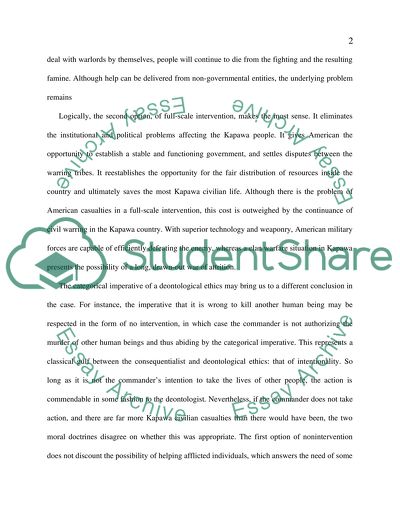Military intelligence ethicist Essay Example | Topics and Well Written Essays - 500 words. Retrieved from https://studentshare.org/miscellaneous/1558131-military-intelligence-ethicist
Military Intelligence Ethicist Essay Example | Topics and Well Written Essays - 500 Words. https://studentshare.org/miscellaneous/1558131-military-intelligence-ethicist.


